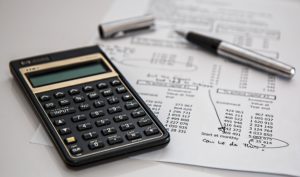A credit score is a number between 300 and 850 and refers to one’s suitability for receiving financial credit. It is an indication of how financially responsible a person is. Your credit score will take into account your level of debt or if you have any unpaid bills.
As well as as affecting the decision you get on your application, your score will also dictate what loan terms you are offered. Your credit score is created using an algorithm which takes into account your borrowing history.
A credit score helps lenders decide if you are eligible for a loan, but not to worry, you can still get a loan if you have a bad credit score.
Key Points:
- A credit score is a number between 300 and 850 that indicates how strong your financial history, and whether you will be a reliable borrower.
- The higher your credit score, the better.
- The average credit score in the US is around 698.
- You can check your credit score via the FICO website.
- Loans are attainable, even with a low credit score.
- Your credit score takes into account how reliably you have paid back past debts, how much you owe now, how many lines of credit you have, among other factors.

What is a Credit Score?
A credit score is designed to help lenders make decisions on who is an appropriate candidate for a loan. Banks and lenders want to know how much of a risk a potential customer might be for defaulting on their loans.
A good credit score indicates that an applicant is less likely to default on payments, whereas a bad credit score suggests that the applicant will be a higher risk.
Lenders will want to check your credit score to work out how much of a risk you are, and therefore to decide your credit score.
Credit Bureaus look at your borrowing history and see if you have been able to repay debts in the past. This means that banks and lenders can look at your score for a general idea of your trustworthiness, instead of having to look through all of your financial and borrowing history.
How is a Credit Score Calculated?
Using your credit score, lenders can predict with some accuracy how likely the borrower is to repay a loan and make payments on time.
To understand your credit score and how to improve it, you’ll need to know how it’s calculated. The number ranges from 300 to 850 and takes into account several factors.
Your credit score can give a lender a representation of your financial history and current circumstances. All loans, credit cards, and mortgage accounts that are open, as well as their start date and loan amounts, are included in the calculation of your credit score. Previous enquiry searches and footprints may also be included. Importantly, the score will weigh in any history of missed repayments or debt, including bankruptcy and CCJs.
How Important is My Credit Score?
Very! Your credit score could affect you getting a mortgage for a house or dream car and determine whether you are accepted for a loan including payday loans, short term loans and also credit cards.
Lenders will take your credit score in to account and perform a credit check when you submit a loan enquiry. This is an essential part of the loan request process, helping the lender work out whether you will be able to afford the loan repayments.
By evaluating your credit score and assessing your financial history, a lender can better view whether to approve your loan request.
This does not mean that you will be denied a loan if you have a poor credit score.
Dime Alley is willing to consider loan requests with a range of credit histories. This means that you may be able to find a loan with Dime Alley, even if a bank has turned you down.
How Can I Check My Credit Score?
Regularly checking your credit score is a good habit to get into, whether or not you are applying for credit or loans. Checking your credit score does not affect your credit and, in fact, can even help improve your credit. Regularly keeping track of your credit score can alert you to potential risk factors such as errors or fraud.
The ways in which you can check your credit score are with services such as the FICO website, Credit Karma or AnnualCreditReport.com where you can get a free credit report. Many loan providers even offer a credit check as part of their services.
A FICO Score is arguably the most widely-recognised and widely-used credit check service. Banks and lenders use it as a metric to determine how likely you are to repay them.
The score you receive from FICO is based on multiple factors including:
- Payment History; this takes into account whether you have paid past payments on time.
- Amounts owed; this is concerned with if you have any outstanding debt (both credit and loans).
- Length of credit history; how long you have had credit for.
- New credit; how often you apply for new credit and new accounts.
- Credit mix; the range of active credit products that you have including instalment loans, credit cards, finance company accounts, mortgage loans, payday loans, etc…
What Do Good And Bad Credit Scores Look Like?
Typically, a credit score of 700 or above is thought to be a ‘good’ credit score. The average credit score is thought to fall between 600 and 750.
A good credit score is an indication that you are reliable borrower. In general, a higher score conveys more confidence to lenders that you can meet the payments agreed in the repayment plan. A credit score above 600 means that you are more likely to be accepted for a loan.
A bad credit score is typically a score of 580 or lower. Bad credit indicates that borrowers have a history of unpaid bills, late payments or debt – and you would therefore only be able to apply for bad credit loans, which often yield much high interest rates.
A bad credit score usually makes it more difficult to obtain a credit card or a loan. However, some lenders have specific bad credit loans to make it easier for this borrower profile to get a loan.
Can I Get A Loan With Bad Credit?
Not every loan requires you to have good credit. Many lenders’ priority is to help you, and that may mean not taking into account your past financial hiccups. Rather, they will take into account other aspects of your life, such as your employment status and what you need the money for.
Payday loan companies like Dime Alley offer loans taking all backgrounds into consideration, so bad credit doesn’t need to be a barrier to borrowing and money.
